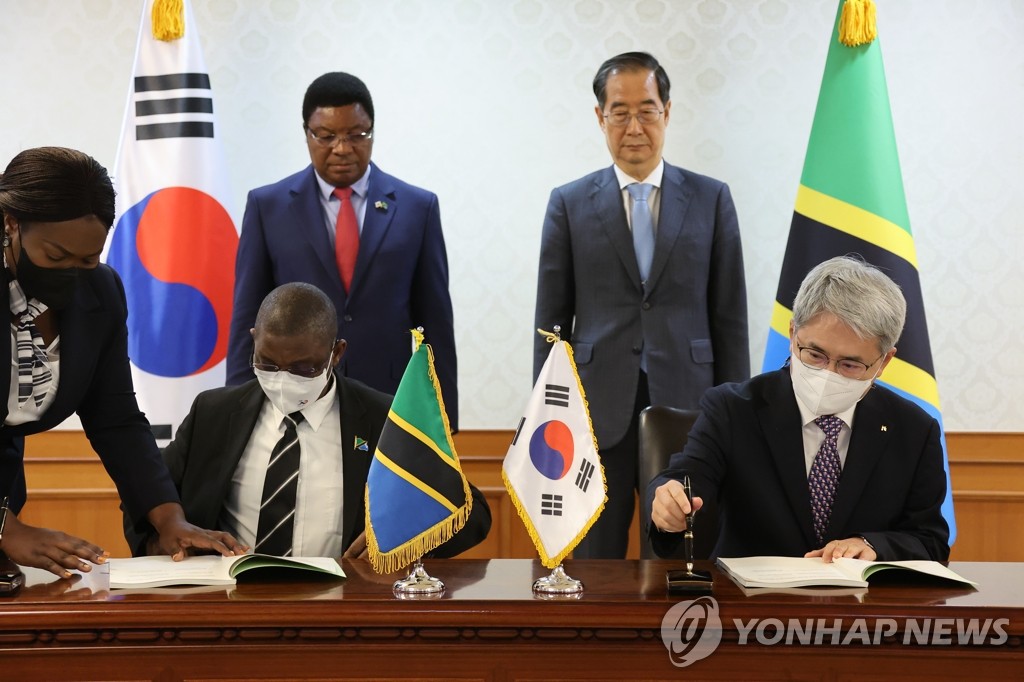The Korean government has recently announced its commitment to bolstering the statistical systems in Tanzania, marking a significant milestone in the ongoing efforts to enhance data collection, analysis, and utilization in the East African nation.
His collaborative initiative is poised to contribute to developing Tanzania’s socioeconomic landscape by providing accurate, reliable, and comprehensive statistical information to inform policy-making, investment decisions, and sustainable development interventions.
The move underscores the burgeoning ties between the two nations and signifies Korea’s proactive engagement in supporting Tanzania’s development aspirations.
The significance of robust statistical systems cannot be overstated, particularly in a rapidly evolving global economy and the imperative to foster evidence-based decision-making. Accurate and reliable statistics form the bedrock of informed policy development, economic planning, and resource allocation, facilitating efficient governance and fostering sustainable development.
Recognizing the pivotal role of statistics in shaping development trajectories, the Korean government has taken a concrete step towards strengthening Tanzania’s statistical capacities, underlining its steadfast commitment to fostering partnership and collaboration with the African nation.
The partnership between Korea and Tanzania in statistical development is anticipated to encompass a multifaceted approach, encompassing technical assistance and capacity-building measures. By leveraging Korea’s advanced expertise in statistical methodologies, data analysis, and information management, Tanzania benefits from a transfer of knowledge and best practices that can catalyze the modernization and optimization of its statistical infrastructure.
This infusion of expertise and resources is expected to bolster Tanzania’s capability to generate, analyze, and disseminate high-quality statistics across various sectors, enhancing the nation’s readiness to address emerging challenges and harness new opportunities.
Moreover, the collaborative endeavour is likely to culminate in implementing innovative technological solutions and data management frameworks aimed at streamlining data collection processes, fortifying data security, and enhancing the accessibility of statistical information to a broader array of stakeholders. By integrating cutting-edge technologies and modern statistical tools, Tanzania can consolidate its statistical architecture, engendering greater efficiency, transparency, and relevance in producing and utilizing statistical data.
Furthermore, the Korean government’s commitment to strengthening statistical systems in Tanzania is poised to bolster institutional linkages between critical stakeholders in generating, analyzing, and utilizing statistical data. Through targeted interventions to enhance the capabilities of statisticians, data analysts, and decision-makers, the collaborative initiative seeks to foster a culture of data-driven governance and decision-making, thereby creating an ecosystem that thrives on integrating statistical insights into policy formulation and implementation.
In parallel, the strategic collaboration between Korea and Tanzania holds the potential to invigorate strategic research and innovation, nurturing a conducive environment for the development and application of new statistical methodologies and analytical frameworks tailored to the specific needs and priorities of Tanzania. This forward-looking approach is instrumental in fostering the emergence of indigenous statistical expertise and homegrown solutions that resonate with Tanzania’s unique socioeconomic context.
As the concerted efforts to fortify statistical systems in Tanzania gather momentum, the broader implications of this partnership extend beyond the realm of statistical enhancement.
The initiative stands to underpin Tanzania’s endeavours to achieve sustainable development goals, catalyze economic growth, and foster inclusive governance by providing the requisite data infrastructure to monitor progress, identify challenges, and devise targeted interventions to address prevailing developmental gaps.
More reliable indicators and socioeconomic metrics will empower Tanzania’s policymakers and international organizations to invest in the country’s development. With access to more comprehensive, real-time data, resources can be targeted where they are needed most. It will also allow progress to be monitored more closely so that priorities and programs can be adapted as conditions change.
Seeing South Korea utilize its experiences and technological know-how to foster statistical advancement in Tanzania gives hope that international partnerships, built on mutual understanding and benefit, can seed positive change. Statistical systems are about more than just numbers – they are the lifeblood of good governance and informed decision-making that impacts daily lives. I’m optimistic this collaboration will nurture Tanzania’s data-driven evolution and continued progress as a nation.
In conclusion, the commitment of the Korean government to strengthening statistical systems in Tanzania signifies a laudable endeavour aimed at nurturing inclusive and sustainable development in the African nation. By aligning the synergy of expertise, technology, and capacity-building, the collaborative initiative can transform Tanzania’s statistical landscape, augmenting its readiness to confront emerging challenges and exploit new opportunities to pursue national development objectives.
This strategic partnership between Korea and Tanzania exemplifies the spirit of international cooperation and solidarity, underpinned by a shared commitment to advancing socioeconomic progress and prosperity in Tanzania.
Read more of our analyses here.

